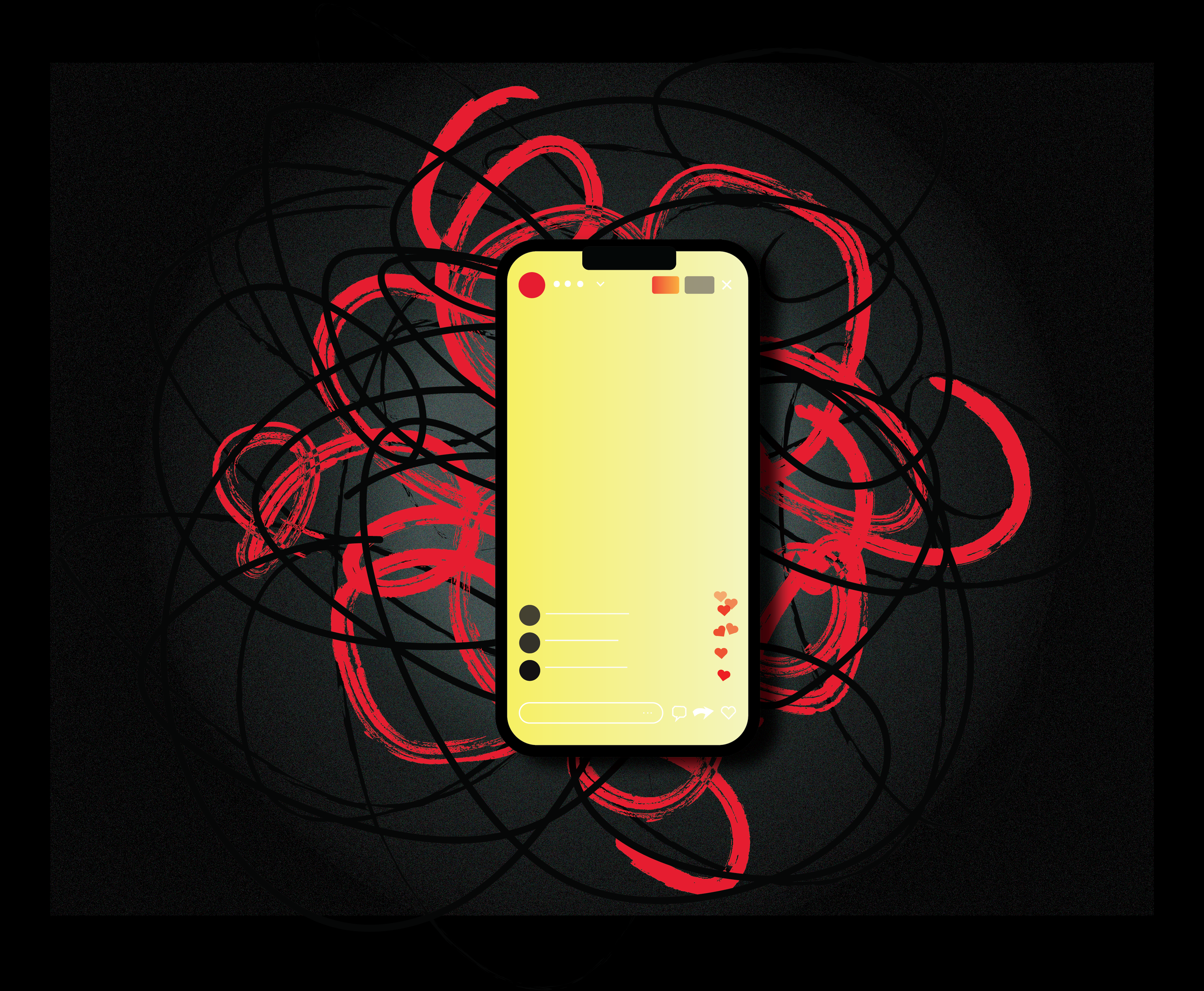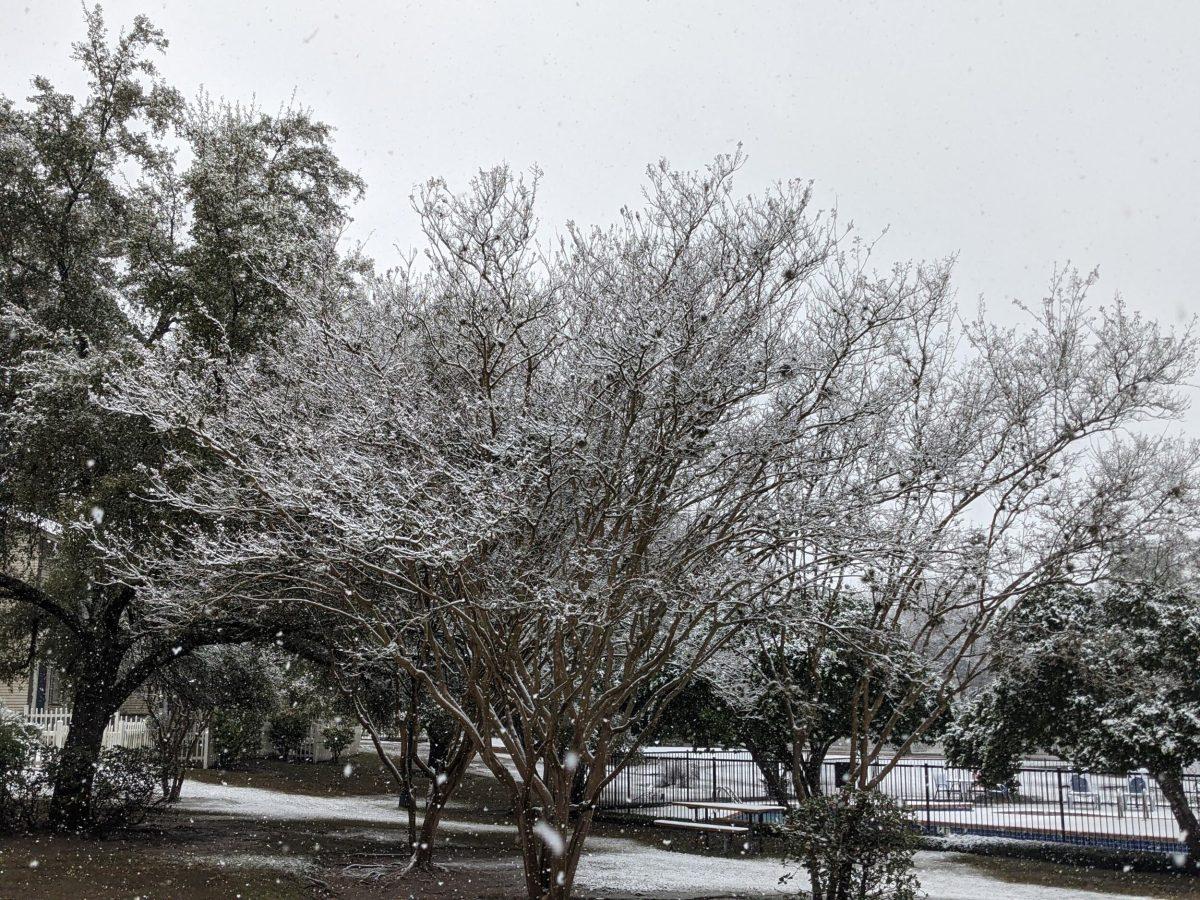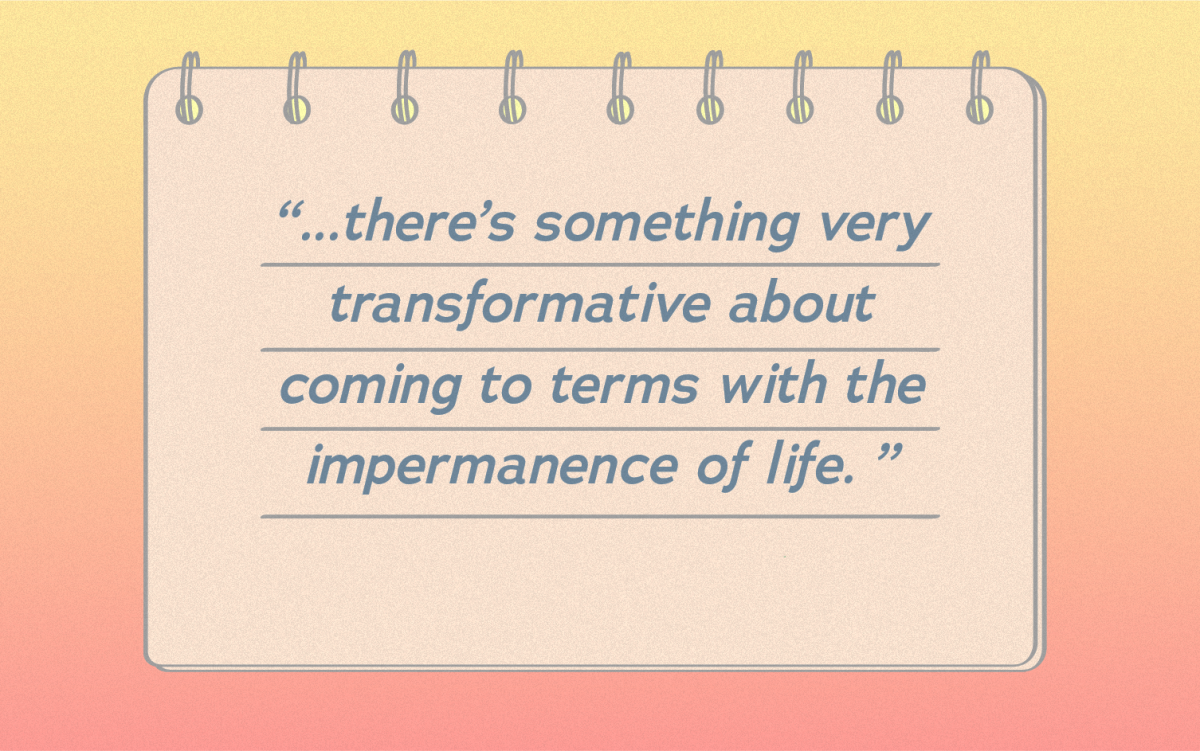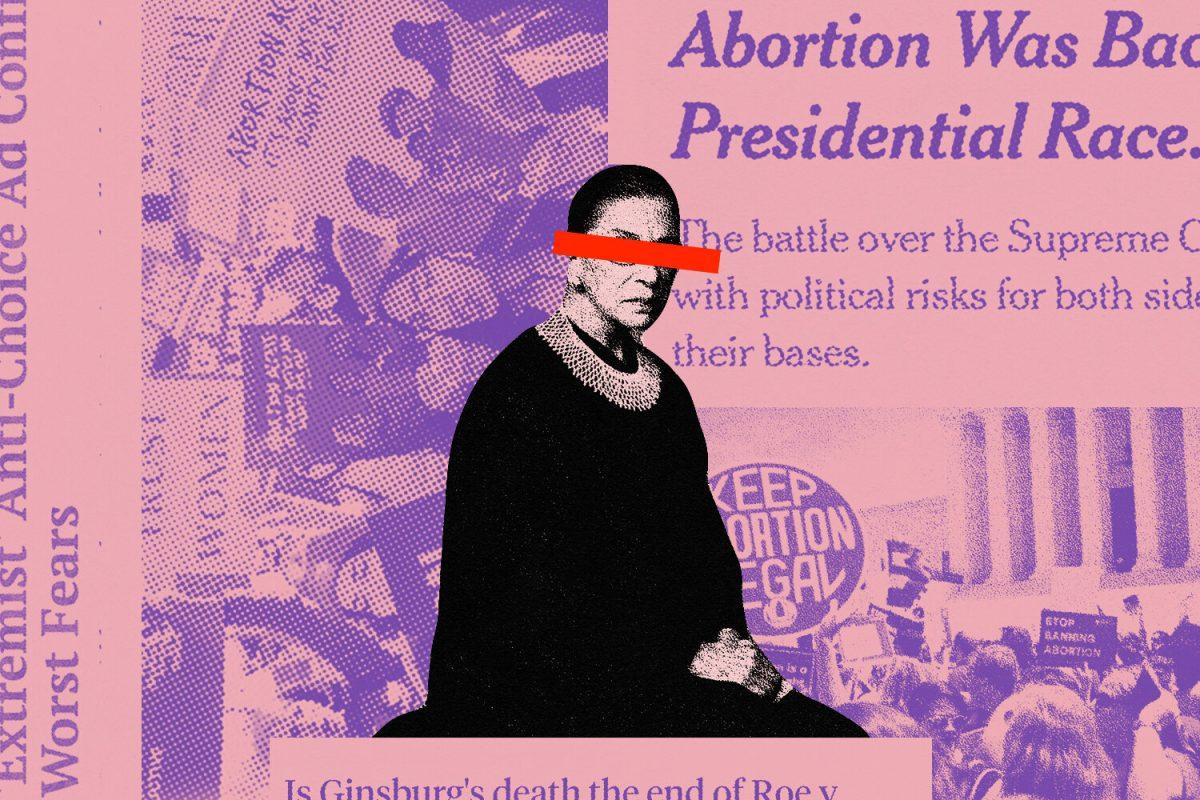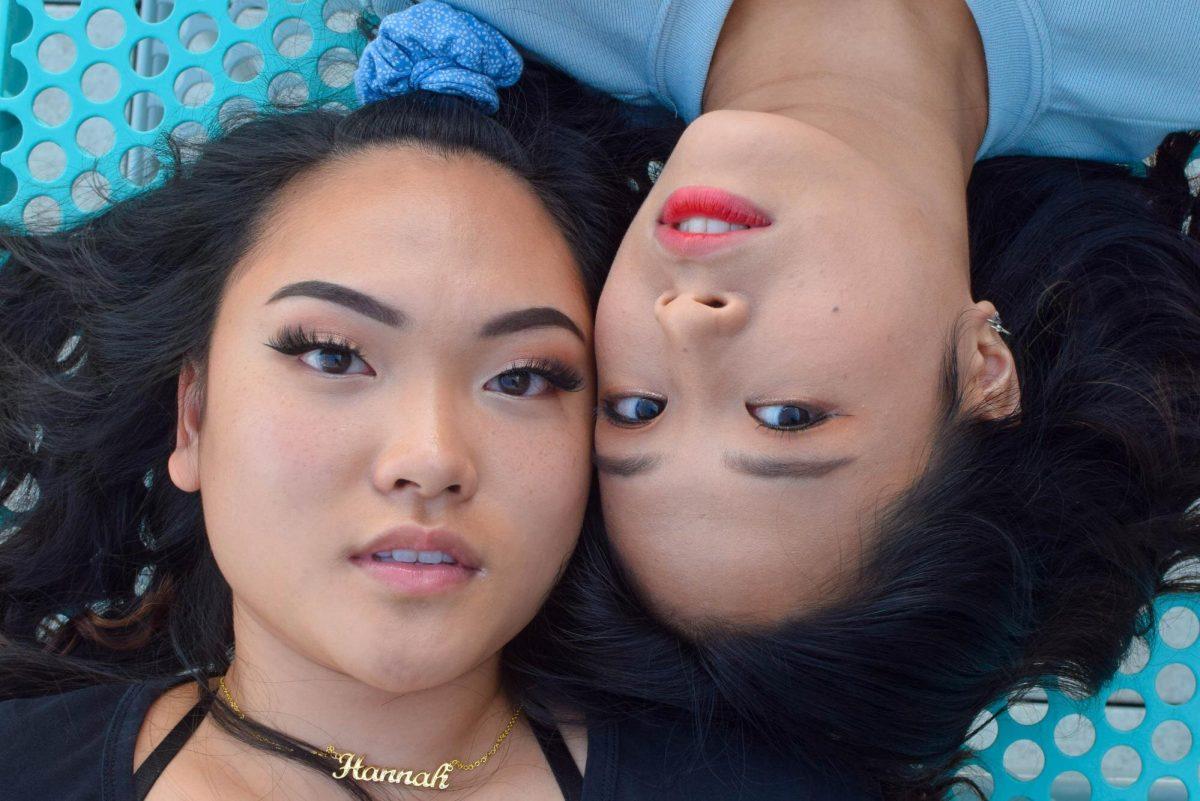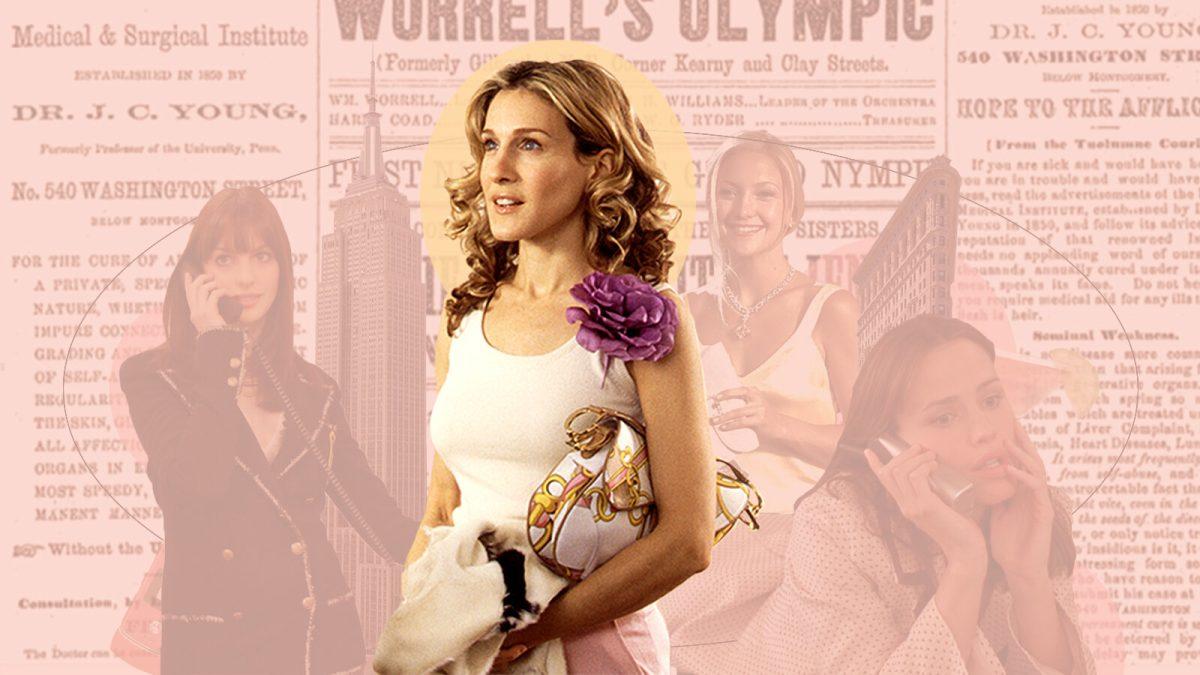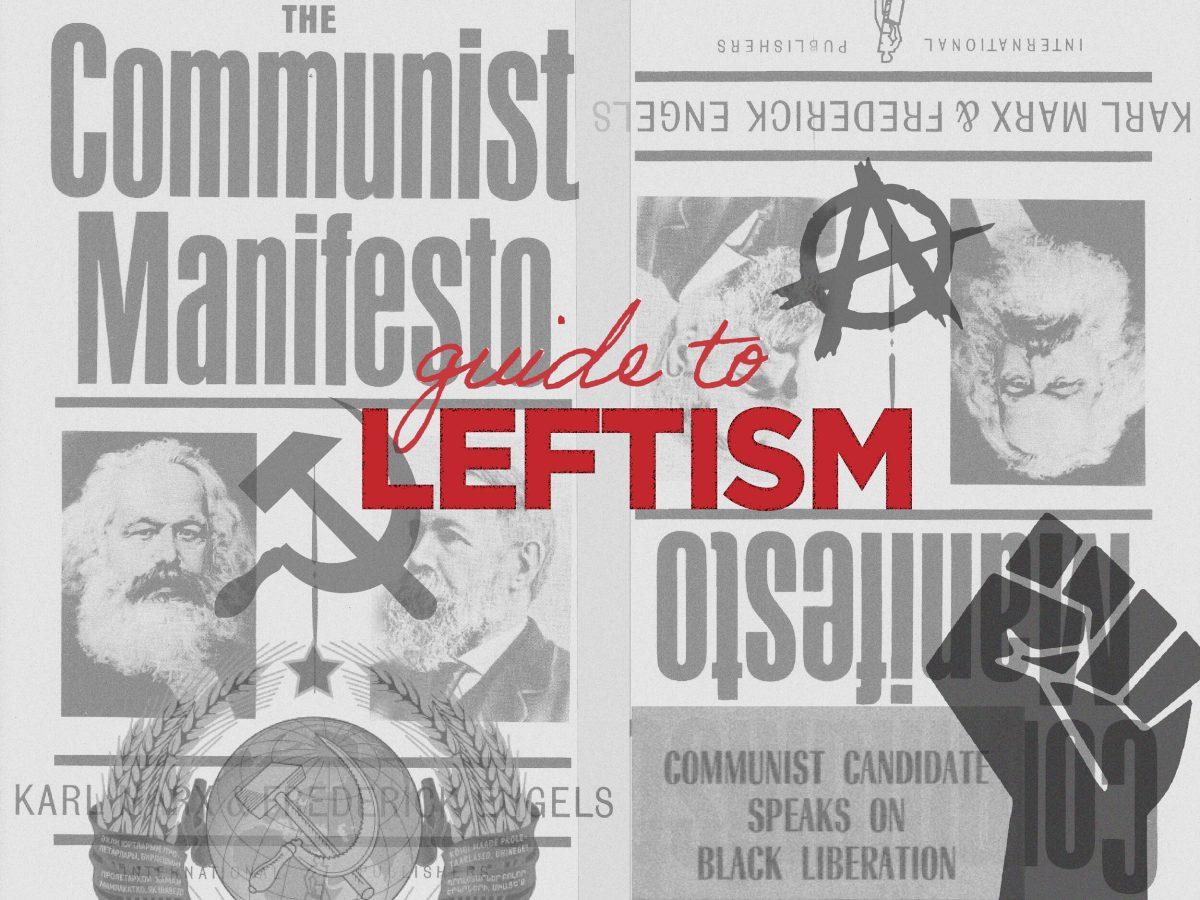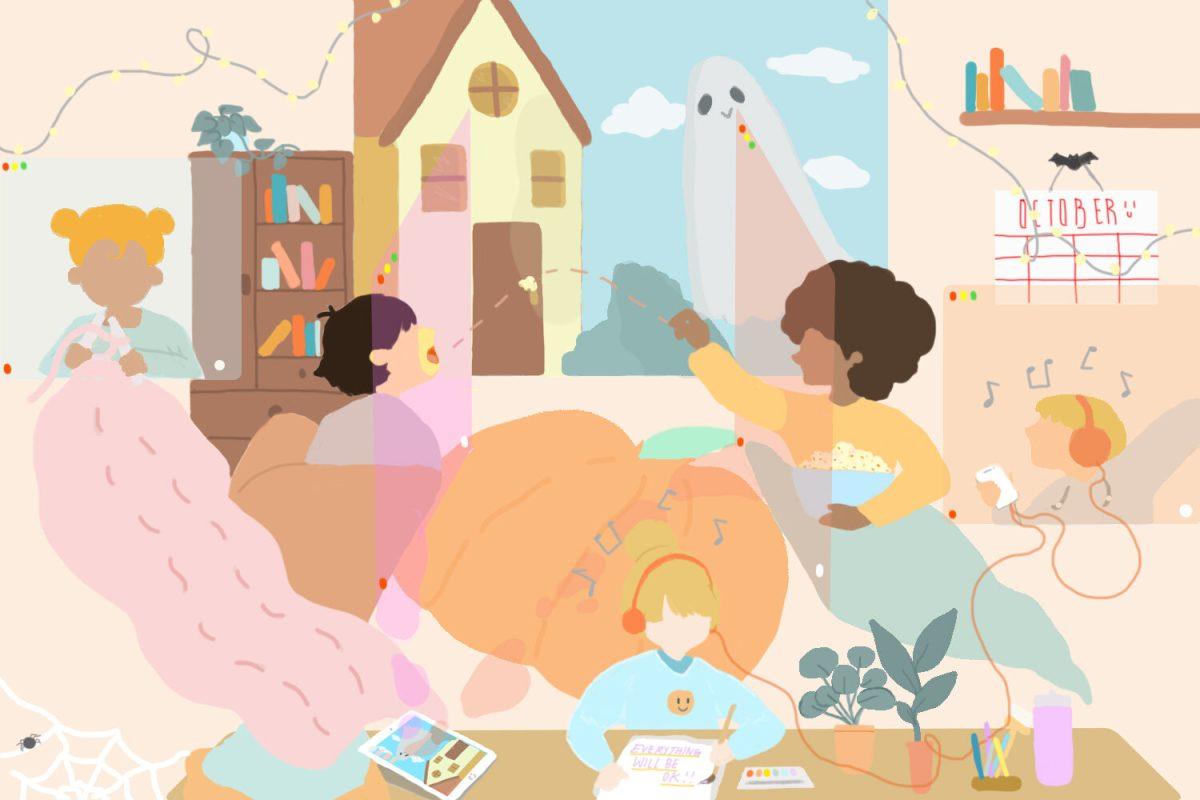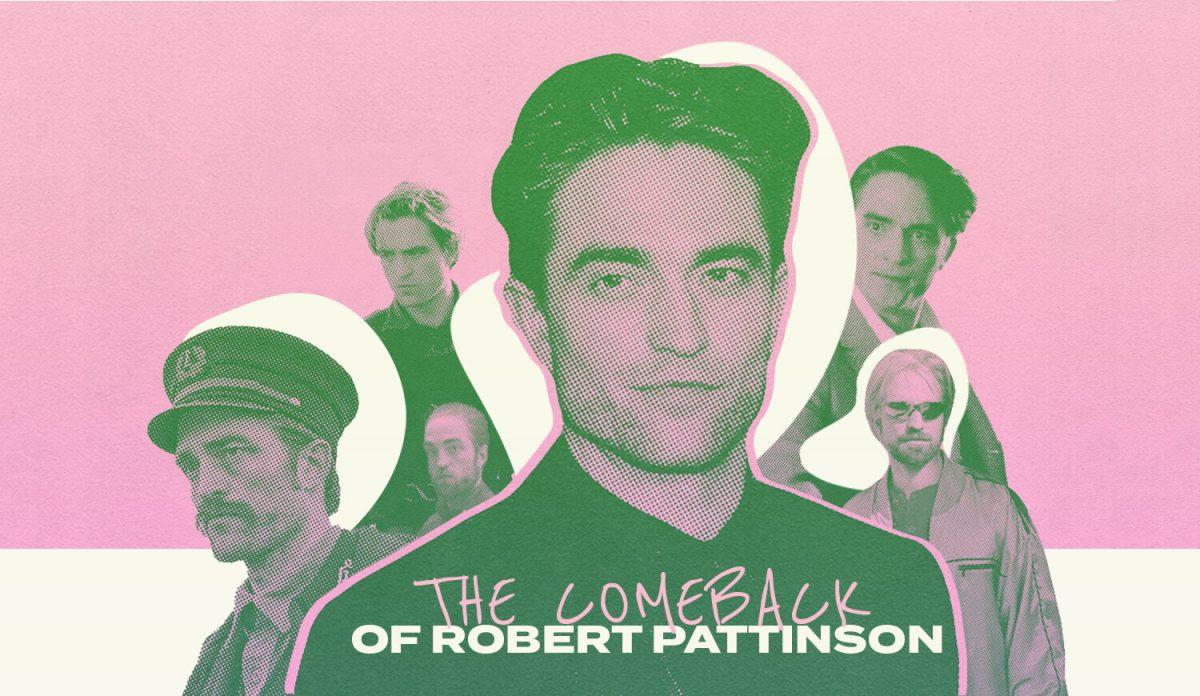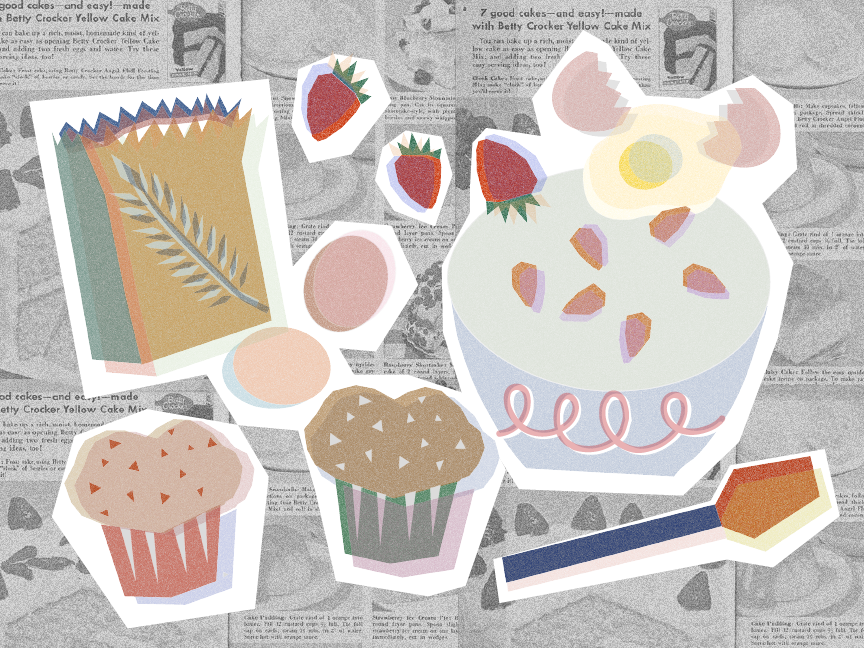Written by Sarah Xu // @sarahxu21 // (she/her)
Design by Zorayda Sanchez // @z.o.r.a.y.d.a // (she/her)
As our friend Timothee Chalamet said beautifully, “It’s tough to be alive now. I think societal collapse is in the air — it smells like it”.
The average person spends anywhere from 45-95 minutes on TikTok a day, and if you’re anything like me, I fall in the very above-average category. For perspective, today I’ve watched 215 videos in 117 minutes, not including the videos I quickly scrolled through and weren’t counted in my full watch history. 215 videos that showed me a combination of sad, funny, depressing, hopeful, and happy content from an indistinguishable amount of genres and niches.
The devastatingly unfortunate fact that most of us watch a wholesome puppy video, immediately scroll to videos of the war in Ukraine or the violence faced by women in Iran, and back to a heartwarming pregnancy announcement from our favorite influencer brings an uneasy feeling to the many like myself who toe the line between disaster and humor on social media every day.
Social media, the epitome of a curse and a blessing, connects us with reality just as well as it disconnects us. When you’re scrolling on TikTok, maybe late at night when you can’t sleep or in between class assignments when you’re trying to decompress, and come across a TikTok that seems very serious or dark, do you feel guilty when you almost immediately swipe past it? When you’re looking for mindless, funny content and the next video starts with “DON’T SCROLL!” followed by a sad story or information on an international tragedy. You may not have the mental space to watch that heavy video, and to that, I say it is totally valid. It’s hard and sometimes feels so inhumane to not give attention to videos that are meant to warn or inform us about the world going on outside your bubble. But sometimes, you just need another minute in your bubble. That being said, we also value the candidness of thoughts and opinions through social media, and transparency into world events that we could not experience or witness otherwise. There is also value in the unsponsored, unpaid, and unfiltered news we’re exposed to, unedited by politicians, journalists, and agenda-driven outlets. The insight we’re exposed to in quite literally every aspect of people’s lives is mind-boggling, and we are left to sift through the millions of stories as we decide which of those is important to our lives.
There’s this theory out there called the “benign-violation theory”. And in a nutshell, it rationalizes the use of humor in instances of moral violations as long as they appear less harmful, i.e. through a less threatening tone. Media culture perpetuates this “coping with humor” and “dark humor” trope which has now been embedded into Gen-Z’s everyday life. This numbing coping mechanism lets us push aside the innate, human emotional responses to trauma in fear of its overwhelming nature, because if we can’t even process our own trauma, how can we be alright processing everyone else’s trauma as well? Compartmentalization or just straight-up denial, whatever you wish to call it, it’s become second nature.
We’ve become so desensitized to life’s dark side that we can watch the most depressing and mind-altering story from a human a few inches from our faces then laugh hysterically at a grizzly bear dancing on a pole. We joke about society’s impending destruction and then go on with our lives as if our math project will be the death of us. We’ve accepted the world we live in, its woes and all, and decided to continue to live between disaster and humor, leaning into whichever side our current mental capacity favors.
In the end, I hope we can continue using social media to our advantage, share stories and memories, and not lose our very human emotional reactions to what we have become so accustomed to viewing every day. I hope that instead of using humor to cope, we can bond communities into a way of healing and foster progress and support to all, whether or not they choose to bear their soul on social media.































